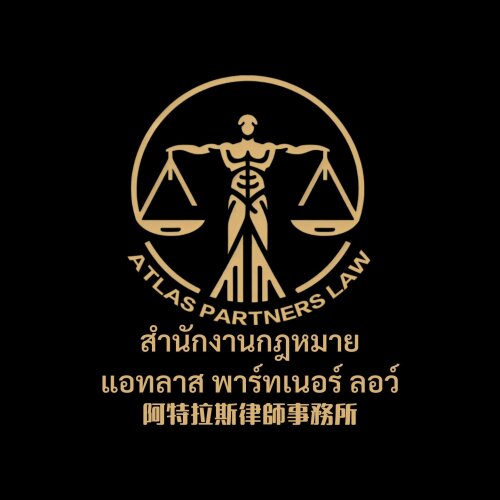ทนายความ กฎหมายศิลปะและทรัพย์สินทางวัฒนธรรม ที่ดีที่สุดใน เชียงใหม่
แบ่งปันความต้องการของคุณกับเรา รับการติดต่อจากสำนักงานกฎหมาย
ฟรี ใช้เวลา 2 นาที
รายชื่อทนายความที่ดีที่สุดใน เชียงใหม่, ประเทศไทย
1. เกี่ยวกับกฎหมายกฎหมายศิลปะและทรัพย์สินทางวัฒนธรรมในเชียงใหม่, ประเทศไทย
บทความนี้ให้ภาพรวมของกรอบกฎหมายที่ควบคุมศิลปะและทรัพย์สินทางวัฒนธรรมในเชียงใหม่ ซึ่งเป็นส่วนหนึ่งของกฎหมายระดับประเทศที่บังคับใช้ทั่วประเทศไทย
ทรัพย์สินทางวัฒนธรรมในเชียงใหม่มีทั้งวัตถุโบราณ งานศิลปะพื้นบ้าน และมรดกสถาปัตยกรรมของเมืองเก่าที่มีความสำคัญทางประวัติศาสตร์ การบังคับใช้กฎหมายเน้นการป้องกันการขุดค้น การนำออกนอกประเทศ และการห้ามขายโดยมิชอบ
แหล่งอ้างอิง: กรมศิลปากรและกระทรวงวัฒนธรรมมีบทบาทสำคัญในการกำกับดูแลทรัพย์สินทางวัฒนธรรมทั่วประเทศ โดยคุณสามารถตรวจสอบข้อมูลเพิ่มเติมได้ที่เว็บไซต์ทางการ
ข้อมูลอ้างอิง: กรมศิลปากร (finearts.go.th) และ กระทรวงวัฒนธรรม (m-culture.go.th) เป็นแหล่งข้อมูลทางการที่ให้รายละเอียดเกี่ยวกับวัตถุโบราณและมรดกศิลปวัฒนธรรม
2. ทำไมคุณอาจต้องการทนายความ
ในเชียงใหม่คุณอาจต้องการทนายความด้านศิลปะและทรัพย์สินทางวัฒนธรรมเมื่อเผชิญประเด็นที่มีความซับซ้อนทางกฎหมายและข้อกำหนดท้องถิ่น
สถานการณ์ที่พบได้บ่อยรวมถึงการตรวจสอบความถูกต้องของวัตถุโบราณ การขออนุญาตนำออกวัตถุไปต่างประเทศ และกรณีข้อพิพาทเรื่องสิทธิในงานศิลปะที่มีมรดก
ทนายความสามารถช่วยคุณเตรียมเอกสาร เคลียร์ข้อกังวลทางกฎหมาย และเจรจากกับหน่วยงานภาครัฐในเชียงใหม่ให้หลีกเลี่ยงความเสี่ยงด้านกฎหมาย
หมายเหตุ: ในเชียงใหม่ การมีที่ปรึกษากฎหมายช่วยให้คุณเข้าใจข้อกำหนดท้องถิ่นและแนวทางปฏิบัติที่กรมศิลปากรหรือกระทรวงวัฒนธรรมออกแบบไว้ชัดเจน
3. ภาพรวมกฎหมายท้องถิ่น
พระราชบัญญัติวัตถุโบราณ พ.ศ. 2504 มีผลบังคับใช้ทั่วประเทศ และบังคับใช้ในเชียงใหม่ในการห้ามขุดค้น กำหนดการบันทึกและการดูแลรักษาวัตถุโบราณ
พระราชบัญญัติคุ้มครองมรดกศิลปวัฒนธรรม เป็นกรอบกฎหมายระดับประเทศที่มุ่งคุ้มครองมรดกศิลปวัฒนธรรม รวมถึงในจังหวัดเชียงใหม่ด้วย โดยมีการแก้ไขปรับปรุงเพื่อเพิ่มประสิทธิภาพในการอนุรักษ์
ประกาศกระทรวงวัฒนธรรมและข้อบังคับของกรมศิลปากรจะกำหนดแนวทางเฉพาะสำหรับพื้นที่เชียงใหม่ เช่น เขตเมืองเก่าและพื้นที่อนุรักษ์สถาปัตยกรรมล้านนา
อ้างอิงเชิงนโยบาย: กรมศิลปากร และ กระทรวงวัฒนธรรม ระบุว่าเชียงใหม่ถือเป็นพื้นที่ที่มีมรดกสถาปัตยกรรมล้านนา จึงต้องปฏิบัติตามกรอบกฎหมายวัฒนธรรมอย่างเคร่งครัด
4. คำถามที่พบบ่อย
อะไรคือขั้นตอนขออนุญาตนำออกวัตถุโบราณจากเชียงใหม่ไปต่างประเทศ?
คุณต้องยื่นขอต่อกรมศิลปากรโดยมีเอกสารระบุตัวตนและรายละเอียดวัตถุอย่างชัดเจน ขั้นตอนรวมไปถึงการตรวจสอบคุณสมบัติของวัตถุและการอนุมัติจากหน่วยงานที่เกี่ยวข้อง
อย่างไรจึงตรวจสอบว่าโบราณวัตถุที่ครอบครองถูกกฎหมายในเชียงใหม่?
ตรวจสอบประวัติการครอบครอง ใบรับรองจากหน่วยงานที่มีอำนาจ และปรึกษาทนายเพื่อประเมินความเสี่ยงด้านกฎหมาย ลักษณะต้องห้ามและข้อจำกัดจะระบุไว้ในกฎหมายวัตถุโบราณ
เมื่อไหร่ควรเรียกทนายความด้านศิลปวัฒนธรรมเมื่อทำธุรกรรม?
หากคุณมีวัตถุโบราณ เกี่ยวข้องกับการขุดค้น หรือมีข้อพิพาทเรื่องมรดกศิลปวัฒนธรรม ควรปรึกษาทนายก่อนลงนามสัญญา เพื่อระบุสิทธิ์และภาระผูกพันด้านกฎหมาย
ที่ไหนฉันจะยื่นขออนุญาตขุดค้นโบราณวัตถุในเชียงใหม่?
โดยทั่วไปคุณต้องยื่นที่กรมศิลปากรหรือสำนักงานจังหวัดที่รับผิดชอบพื้นที่นั้นๆ ใบอนุญาตจะระบุพื้นที่ ขอบเขต และระยะเวลาการดำเนินการ
ทำไมการขายงานศิลปะโบราณจึงมีกฎเข้มงวดในเชียงใหม่?
เพื่อป้องกันการลักลอบขนถ่ายและการจำหน่ายวัตถุที่มีคุณค่าทางวัฒนธรรม กฎหมายระบุข้อกำกับการซื้อขาย การออกใบรับรอง และการตรวจสอบแหล่งที่มาของวัตถุ
สามารถยื่นคำขอสอบถามข้อมูลผ่านออนไลน์กับกรมศิลป์ได้หรือไม่?
หลายหน่วยงานมีช่องทางออนไลน์สำหรับคำถามทั่วไป อย่างไรก็ตามคำขออนุญาตจริงมักต้องยื่นผ่านแบบฟอร์มและเอกสารประกอบที่ระบุ
ควรเตรียมเอกสารอะไรบ้างก่อนจ้างทนายด้านศิลปวัฒนธรรม?
เตรียมสำเนาบัตรประชาชน เอกสารพิสูจน์ความเป็นเจ้าของ หรือความครอบครองใบเสร็จรับเงิน ใบอนุญาตหรือเอกสารการค้นพบ และรูปถ่ายวัตถุเพื่อประกอบคำปรึกษา
ควรเปรียบเทียบทนายอย่างไรเพื่อให้เหมาะกับเชียงใหม่?
พิจารณาความเชี่ยวชาญด้านวัฒนธรรม ทั้งประสบการณ์ในเชียงใหม่และประเด็นเฉพาะท้องถิ่น และตรวจสอบบทวิจารณ์จากลูกค้าก่อนหน้าที่เคยทำคดีในพื้นที่
ระยะเวลาการดำเนินคดีคุ้มครองมรดกศิลปวัฒนธรรมในเชียงใหม่มักนานแค่ไหน?
ระยะเวลาขึ้นอยู่กับความซับซ้อนของคดี โดยทั่วไปอาจถูกเรียกพิจารณาในหลายเดือนถึงปี หากมีข้อพิพาทยิ่งยาวนาน
คุณสมบัติทนายศิลปวัฒนธรรมที่ควรมีเพื่อใช้งานในเชียงใหม่คืออะไร?
ควรมีความเข้าใจกรอบกฎหมายวัฒนธรรม ความรู้เรื่องมรดกท้องถิ่น และทักษะการประสานงานกับหน่วยงานราชการในพื้นที่
ความแตกต่างระหว่างการร้องเรียนกับการฟ้องคดีคืออะไร?
การร้องเรียนมักเป็นช่องทางระงับข้อพิพาทผ่านหน่วยงานรัฐ ช่องทางนี้เร็วกว่าและไม่ต้องฟ้องศาล ส่วนการฟ้องคดีมีโอกาสได้คำวินิจฉัยจากศาลแต่ใช้เวลานานกว่า
การคิดค่าใช้จ่ายทนายด้านกฎหมายศิลปะในเชียงใหม่เป็นอย่างไร?
ค่าใช้จ่ายมักแบ่งเป็นค่าปรึกษา ค่าบริการรายชั่วโมง และค่าใช้จ่ายสำหรับเอกสาร คุณควรขอประมาณการล่วงหน้าเป็นลายลักษณ์อักษร
สามารถขอคำปรึกษาเบื้องต้นได้ฟรีหรือไม่?
บางสำนักงานทนายความหรือองค์กรไม่แสวงหาผลกำไรอาจมีการให้คำปรึกษาเบื้องต้นฟรี แต่โดยทั่วไปคุณควรประเมินค่าใช้จ่ายล่วงหน้า
5. ทรัพยากรเพิ่มเติม
ต่อไปนี้เป็นแหล่งข้อมูลทางการที่คุณสามารถใช้งานได้ในเชียงใหม่
- กรมศิลปากร เว็บไซต์ทางการให้ข้อมูลเกี่ยวกับวัตถุโบราณ มรดกศิลปวัฒนธรรม และแนวทางขออนุญาต: https://www.finearts.go.th
- กระทรวงวัฒนธรรม ข้อมูลนโยบาย กฎหมาย และประกาศที่เกี่ยวข้องกับศิลปะและวัฒนธรรม: https://www.m-culture.go.th
- สำนักงานทรัพย์สินทางปัญญาแห่งชาติ ข้อมูลลิขสิทธิ์และทรัพย์สินทางปัญญาในงานศิลปะ: https://www.ipthailand.go.th
6. ขั้นตอนถัดไป
- รวบรวมข้อมูลเบื้องต้นเกี่ยวกับกรณี เช่น ประเภทวัตถุ ประวัติการครอบครอง และใบอนุญาตที่มีอยู่
- ตรวจสอบว่ากรณีของคุณอยู่ ضمنกรอบกฎหมายวัตถุโบราณหรือมรดกศิลปวัฒนธรรม และสอดคล้องกับข้อบังคับในเชียงใหม่
- นัดปรึกษาทนายความด้านศิลปะและทรัพย์สินทางวัฒนธรรมที่เชี่ยวชาญพื้นที่เชียงใหม่
- เตรียมเอกสารประกอบการปรึกษา เช่น สำเนาบัตรประจำตัว ใบรับรองความเป็นเจ้าของ เอกสารการค้นพบ
- ขอประมาณการค่าใช้จ่ายและระยะเวลาจากทนายก่อนจ้าง
- ตกลงในสัญญาและแผนดำเนินการกับทนาย พร้อมกำหนดจุดตรวจสอบความคืบหน้า
- เริ่มกระบวนการทางกฎหมายตามคำแนะนำของทนาย พร้อมติดตามผลลัพธ์อย่างใกล้ชิด
Lawzana ช่วยคุณค้นหาทนายความและสำนักงานกฎหมายที่ดีที่สุด ใน เชียงใหม่ ผ่านรายชื่อผู้เชี่ยวชาญด้านกฎหมายที่มีคุณสมบัติเหมาะสมที่คัดสรรและตรวจสอบล่วงหน้า แพลตฟอร์มของเรานำเสนอการจัดอันดับและโปรไฟล์โดยละเอียดของทนายความและสำนักงานกฎหมาย ช่วยให้คุณเปรียบเทียบตามสาขากฎหมาย รวมถึง กฎหมายศิลปะและทรัพย์สินทางวัฒนธรรม ประสบการณ์ และความคิดเห็นของลูกค้า
แต่ละโปรไฟล์ประกอบด้วยคำอธิบายเกี่ยวกับสาขากฎหมายของสำนักงาน รีวิวจากลูกค้า สมาชิกในทีมและหุ้นส่วน ปีที่ก่อตั้ง ภาษาที่พูด ที่ตั้งสำนักงาน ข้อมูลการติดต่อ การมีตัวตนบนโซเชียลมีเดีย และบทความหรือแหล่งข้อมูลที่เผยแพร่ สำนักงานส่วนใหญ่บนแพลตฟอร์มของเราพูดภาษาอังกฤษและมีประสบการณ์ทั้งในเรื่องกฎหมายท้องถิ่นและระหว่างประเทศ
ขอใบเสนอราคาจากสำนักงานกฎหมายชั้นนำ ใน เชียงใหม่, ประเทศไทย — รวดเร็ว ปลอดภัย และไม่ยุ่งยาก
ข้อจำกัดความรับผิดชอบ:
ข้อมูลที่ให้ไว้ในหน้านี้มีวัตถุประสงค์เพื่อเป็นข้อมูลทั่วไปเท่านั้นและไม่ถือเป็นคำแนะนำทางกฎหมาย แม้ว่าเราจะพยายามตรวจสอบความถูกต้องและความเกี่ยวข้องของเนื้อหา แต่ข้อมูลทางกฎหมายอาจเปลี่ยนแปลงได้ตามกาลเวลา และการตีความกฎหมายอาจแตกต่างกันไป คุณควรปรึกษาผู้เชี่ยวชาญด้านกฎหมายที่มีคุณสมบัติเหมาะสมเพื่อขอคำแนะนำเฉพาะสำหรับสถานการณ์ของคุณเสมอ
เราปฏิเสธความรับผิดทั้งหมดสำหรับการกระทำที่ทำหรือไม่ทำตามเนื้อหาในหน้านี้ หากคุณเชื่อว่าข้อมูลใดไม่ถูกต้องหรือล้าสมัย โปรด contact us และเราจะตรวจสอบและแก้ไขตามความเหมาะสม









